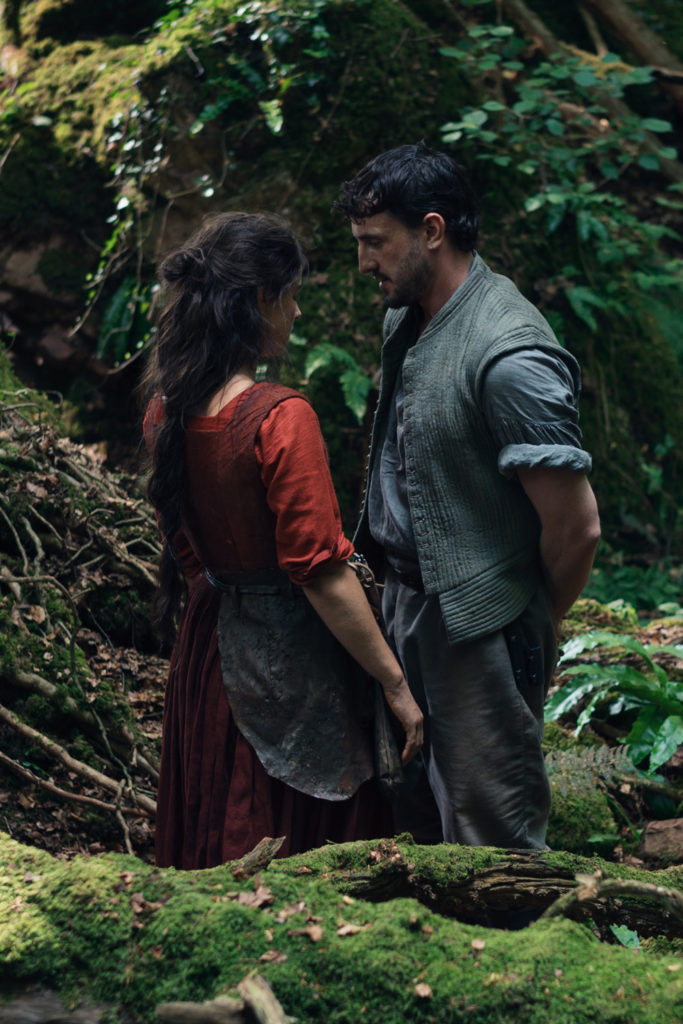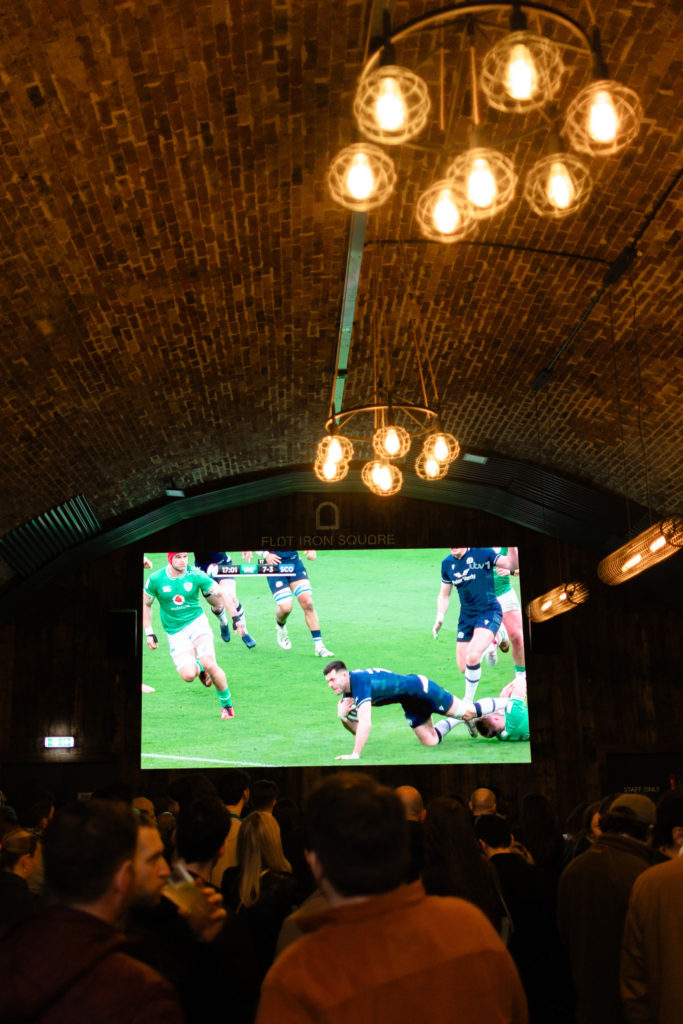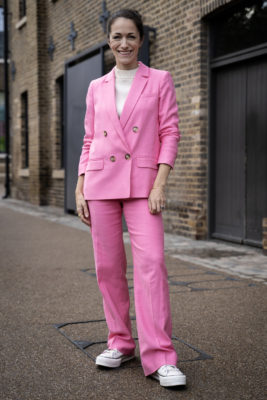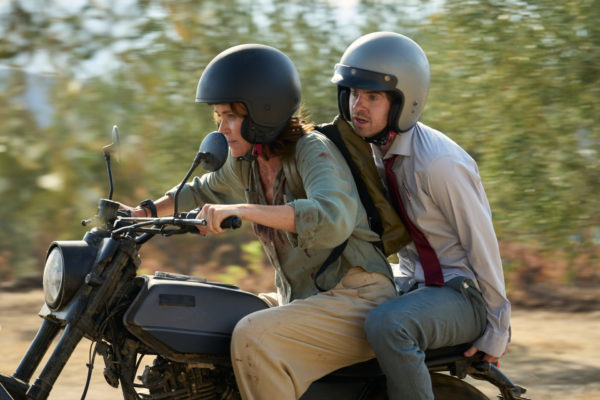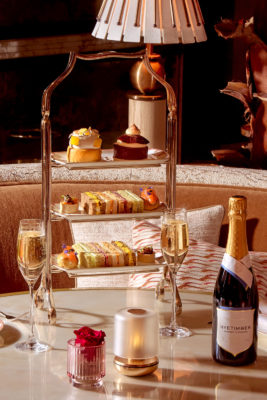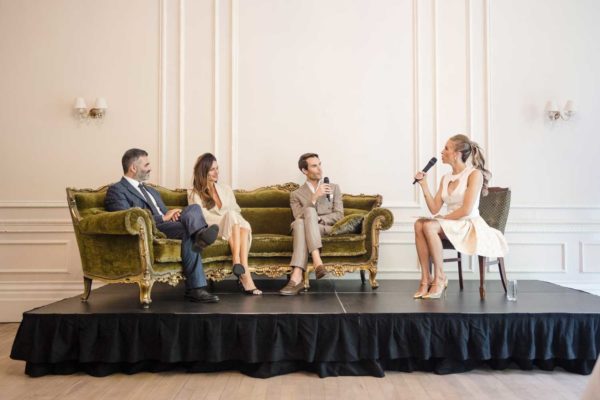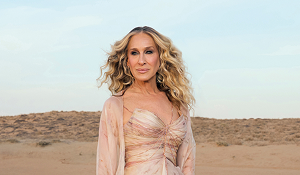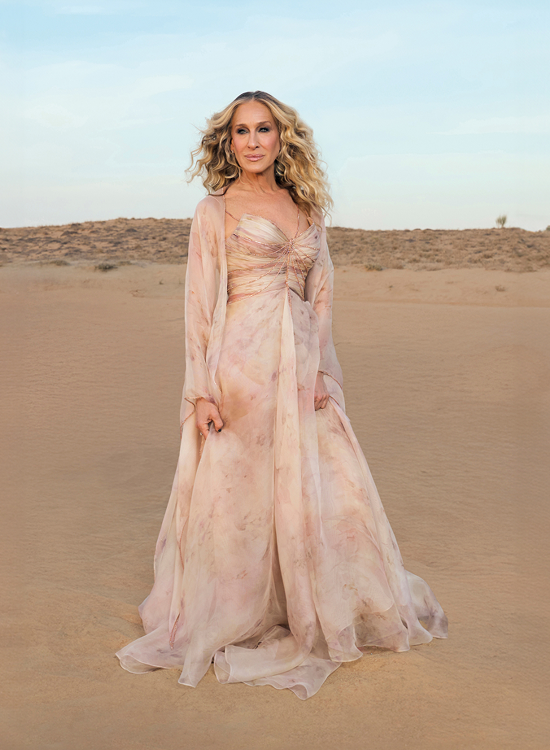George The Poet Joins Forces With The London Mayor
By
6 months ago
A live performance this evening launches the new Art of Expression campaign
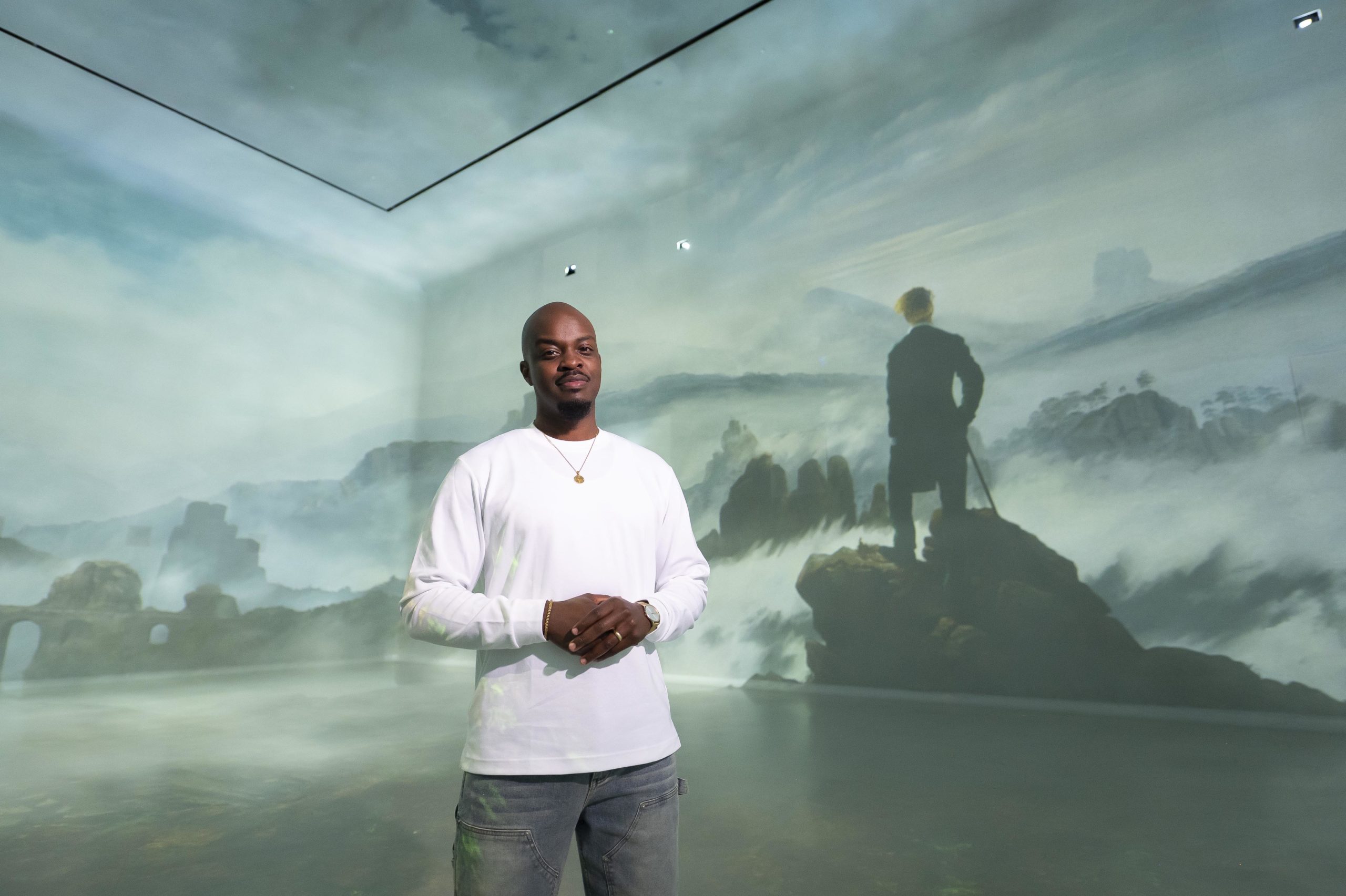
George the Poet – the rapper, performer and multi-award-winning podcaster – famously wrote and performed a poem at Harry and Meghan’s wedding and was offered (and refused) an MBE aged 28. Now he has collaborated with the Mayor of London’s Violence Reduction Unit (VRU) on a new campaign making art more accessible to young people.
George, 34, who lives in London with his wife and two young children, has always believed culture is a powerful (the most powerful, even) medium to motivate people into action and uses his unique platform to address topics from the climate crisis – ‘not only is it pertinent and urgent, but it’s the conversation that includes all of us, affects all of us’ – to London’s knife crime with his hallmark lyricism and academic rigour.
This summer George has worked with a group of young people from the VRU on Art of Expression, an initiative designed to bring iconic masterpieces to life (and new audiences) at Frameless Galleries, the immersive art space in London. The spoken word pieces – developed with George in a workshop at the gallery – are in response to paintings by Munch, Rembrandt and Hieronymus Bosch among others, showcasing how visual and verbal storytelling collide as seen through the next generation of London’s voices. Launching with live performances by George and young people from the VRU this evening, 17 July, the spoken word pieces can be accessed by visitors to Frameless and online throughout the summer.
Art of Expression was commissioned by Frameless in response to a survey by the gallery that found 60 percent of 2,000 young people surveyed would like more access to art, while 30 percent couldn’t relate art to their lives and 26 percent said galleries feel intimidating. ‘Frameless is about offering a place where anyone — no matter their background or experience — can walk in and feel something,’ says lead curator Rosie O’Connor. ‘By partnering with George the Poet and the Mayor’s VRU, we’re breaking down those barriers and showing that art can be a powerful tool for self-expression and connection.’
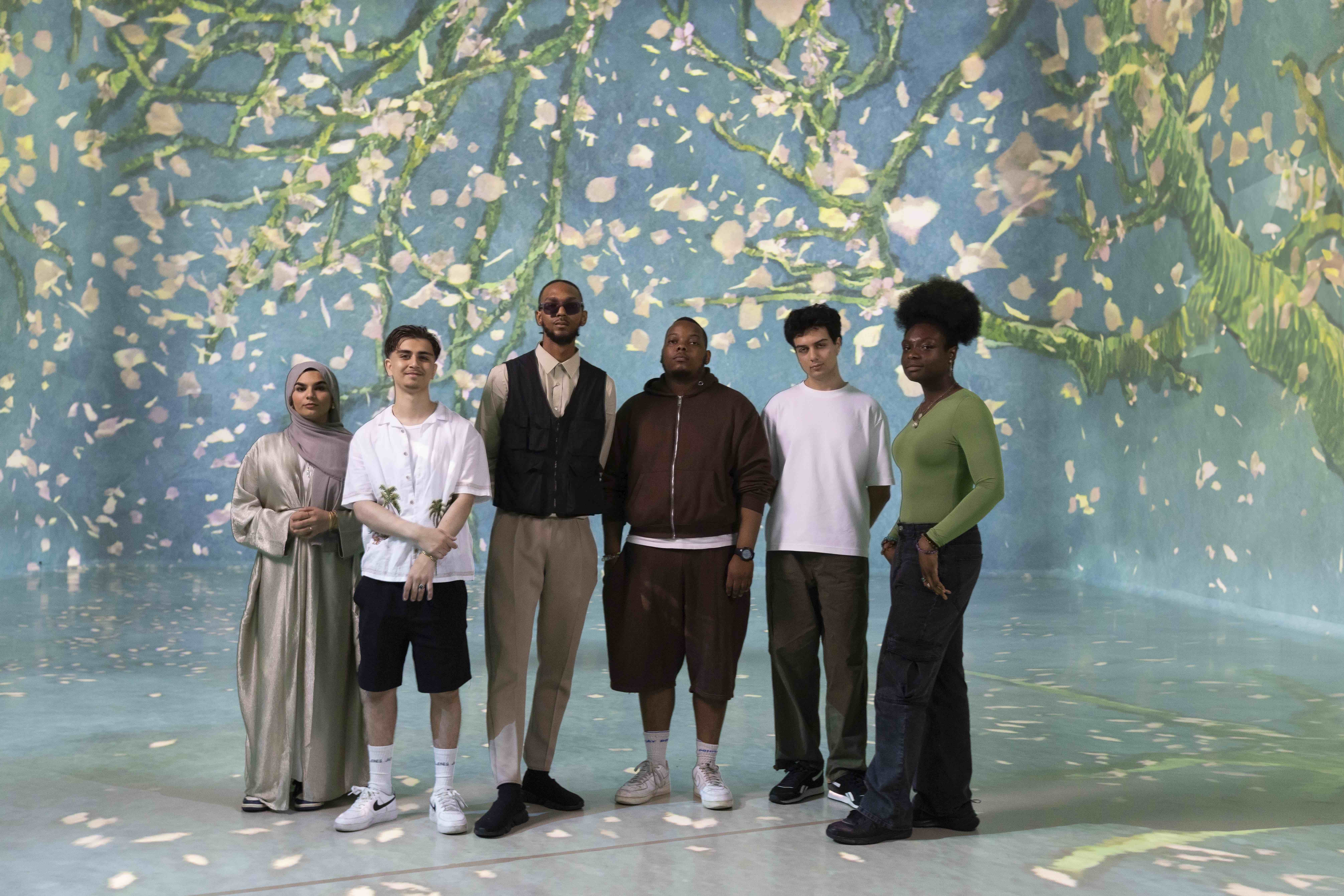
From left: Safa, Raffaele, Tafari, Joshua, Zubin and Olivia from the Mayor of London’s Violence Reduction Unit (VRU) Young People’s Action Group
C&TH Meets George The Poet
Born the son of Ugandan immigrants, George Mpanga grew up the second eldest of six children on a council estate in Neasden in northwest London. Tutored hard by his mother, he won a place at a selective grammar school in Barnet before going to King’s College Cambridge to study politics, psychology and sociology. He started his artistic career as a rapper and signed to Island Records aged 22 but quickly became disillusioned with the music industry. ‘I was packaged and presented to the world as a rapper,’ he says. ‘I moved to poetry because I didn’t like the industry restrictions that came with that. I wanted a more broad-church engagement, but my label preferred I meet the existing expectations of what someone with my background would do with a lyrical ability.’
George’s debut poetry collection, Search Party, was published in 2015, the same year he was nominated for the Critic’s Choice Award at the Brits. In 2018 (the year of Harry and Meghan’s wedding) he launched his podcast – Have you Heard George’s Podcast? – to find new ways of engaging audiences. ‘Growing up, I was taught to communicate across different walks of life. Then I was fortunate that my secondary school was very diverse, so I was used to having conversations about anything and with anyone. I moved into long-form poetic podcasting because it gave me a blank slate, which was fun.’
The podcast spans 38 episodes – the first ‘chapter’ published independently, the subsequent three picked up by the BBC and recorded at Abbey Road – and layers storytelling and verse with a cinematic score, latterly from the BBC Concert Orchestra. It’s a poignant and thoroughly eloquent lens on life from London to Uganda, and has won a string of awards, including a Peabody (the first podcast outside the US to win the award). ‘As a result, my audience really changed. I was prominent on BBC Radio 4, which brought a lot of middle England listeners, which I loved.’
Currently George is studying for a PHD at University College London inthe socio-economic power of black music . The thrust of his enquiry is to show the value of black music – ‘the psychological benefits, the cultural healing, and the enterprise of doing something constructive as a young person’ – goes beyond the commercial and stylistic aspects of the genre. ‘I have lived that experience and I’m excited to make the case. It’s big legacy stuff. I want to take what I’ve started in my own journey – that unique long form approach to live performance, connecting with other voices and talents – and use the music to create an alternative space to mainstream politics, to try and achieve discourse and generate solutions.’
George The Politician?
Many before me have asked if George the Politician might be his next move – following in the footsteps of his grandmother Joyce Mpanga, who was Minister for Women’s Affairs in Uganda. ‘If I had entered Parliament ten years ago, I could never speak with the same honesty about the array of subjects I cover in just one podcast season.’ He has always maintained that culture offers a better place to make a meaningful contribution. ‘When I listen to the difference in how older politicians conceived of their role versus the current crop, I feel there’s been a bastardisation of the job – a drive to trivialise the work of politicians from within. The institution seems to reward dishonesty and hubris.’ It’s the hubris, he says, that really gets to him, and part of the reason I suspect he turned down an MBE in 2019. ‘Historically people would have attached that kind of arrogance and bluster to one party, but today I see it across mainstream politics. There’s a complete refusal to acknowledge any wrongdoing and total contempt for the electorate. If the situation changes, or if I’m able to connect with people who can show me a different way, then I’m open to that because I want to serve this country as best as I can.’
It’s no surprise George’s heroes growing up weren’t public figures. ‘I don’t want people to think inspiration is something out there in the world you gotta go find. I’ve learned the most from paying attention to who’s in front of me. They’re going to be flawed, they’re gonna have ugly moments. I used to have a basketball coach who was a real toughie and sometimes he was overbearing. If one person in the group had their hands in their pockets, we were all doing push-ups. Looking back, he’s the reason I expect hard work to produce results.’ His parents, ‘uncles and aunties’ always set an example. ‘And I also learned from the older guys in my neighbourhood who were rapping. They showed me how to generate your own work ethic. To create energy among the audience, establish your perspective in the world.’
Has his willingness to listen and study how people communicate fed his lyricism? ‘If you can understand where people are coming from, then you can learn how to tune into their frequency a little, which is why I always knew orchestral music, even as a rapper, would be a great thing to tap into.
Creatively, I’ve thrown the kitchen sink at what I do, and accolades and awards ceremonies are supposed to represent the value you put into people’s lives. But when you hear it from the horse’s mouth, when I hear people reflecting on the subject matter or when someone comes up to me in the street and says they had never heard this experience articulated until I did, that every single time is my proudest achievement.’
George The Poet performs tonight (17 July) with members of the Mayor of London’s Violence Reduction Unit (VRU) Young People’s Action Group at Frameless Galleries to launch the Art of Expression campaign, which runs throughout the summer. frameless.com


